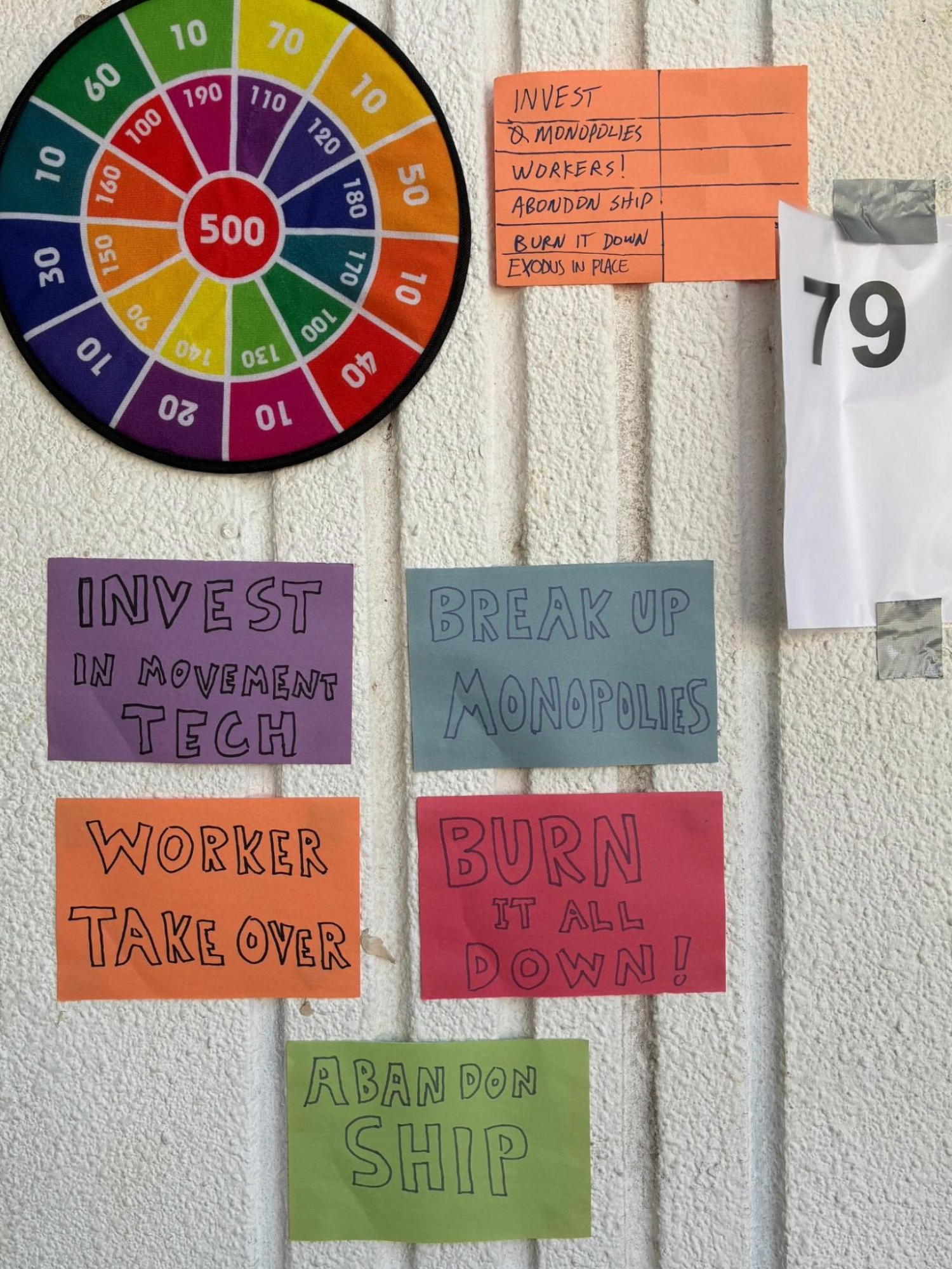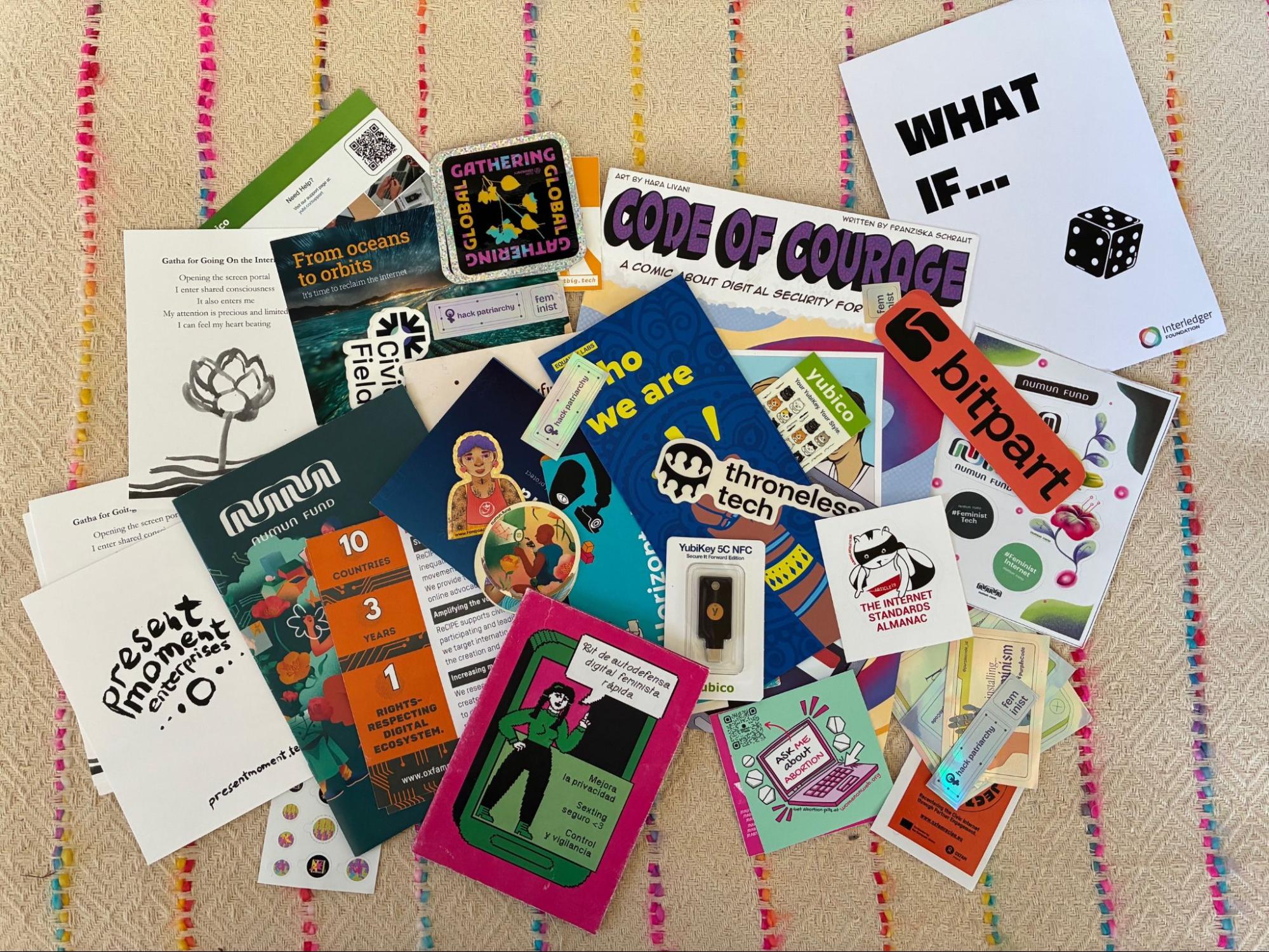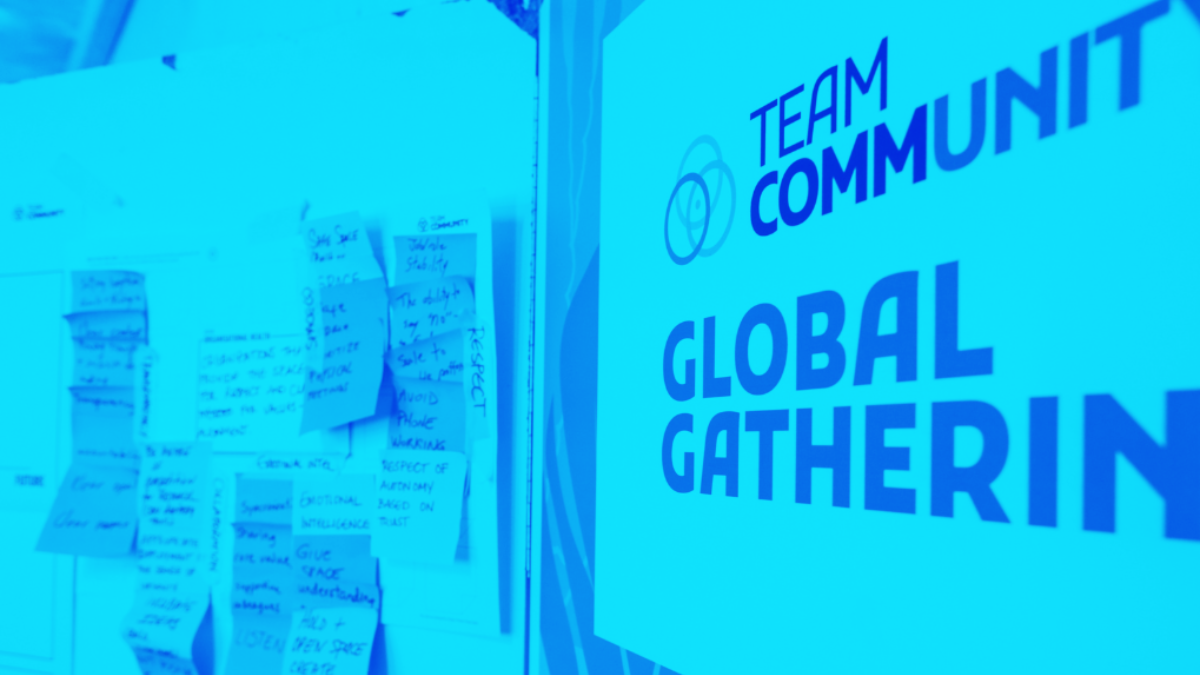Amid Threats, Global Gathering Seeks to Reseed Digital Rights Ecosystem
Greta Byrum / Oct 10, 2025Last month, public interest technologists, civil society advocates, journalists and researchers who defend human rights and freedom of speech around the globe met in Estoril, Portugal at the Digital Rights Defenders Global Gathering. Amidst threats to democracy and the aftershocks of the withdrawal of US support for internet freedom and digital rights organizations in dozens of countries, one might anticipate the mood would be glum; but the joy of being together was evident in this group.
Longtime friends and colleagues reunited in an atmosphere of warmth and acceptance, and some participants brought their children, adding to the sense of family. It was clear to see the mutual recognition of people who understand each other and the deeply specialized languages they speak — technical and otherwise — and who dedicate their lives to building tech to protect human rights and freedoms (as well as various forms of geeky fun).
These are people who personally see the impact of their work in the visceral experiences of communities around the globe struggling to make their voices heard, often from within repressive regimes. Under the festival village’s twining trees in golden September sunlight, participants reminisced about the late 2010s era of the Arab Spring, when Signal and Tor, and other encryption, peer-to-peer, and circumvention softwares were developed with the support of USAID, the State Department, and global democracy advocates. Now, of course, parent groups, happy hour chums, and political antagonists alike are among the millions that use Signal every day.
As challenges to free speech abound in the US and elsewhere, and as information ecosystems degrade and tracking, fraud, misinformation, and surveillance heighten risk for everyday internet users, those who value free expression are ever more dependent on the work of this group of technologies and technologists specializing in encryption and privacy protection.

How some digital rights defenders are feeling these days. Photo by Greta Byrum
But despite the solidarity and occasional levity, the plenary conversations were focused overwhelmingly on the collapse of the funding ecosystem and the need for new ecosystems of support. With the loss of US government dollars and uncertainty at philanthropies about how to respond strategically to the overlapping consequences of increasing authoritarianism and the the advance of the AI juggernaut, many of digital rights projects and the communities that sustain them are under threat – not to mention the long-tail impact of the Trump Administration’s cuts to foreign aid. All of this has a real impact on the lives and livelihoods of people around the globe who design and guard the underlying systems of human rights advocacy in the digital age.
One such session on threats to the sustainability of the ecosystem imagined what would happen if, by next year, 70% of current funding in the ecosystem disappeared, dubbed by many as a likely scenario. Which organizations and roles would be eliminated? How would this professional community join forces to keep vital services and codebases alive? At least one participant proposed the dissolution of the tech rights and justice field as it has been, suggesting that the efforts of this group would be better spent supporting non-tech organizations, rather than operating and consuming resources as a separate sector.
At another session, participants brainstormed yet more ways to rethink resource ecosystems in a time of scarcity. Imagining a moment 25 years in the future and assuming humanity successfully survives the polycrises of the 2020s and 30s, participants brainstormed about how humanity will have made it through – from “rewilding” platforms and methods for free expression ecosystems to developing “ecosystem services” approaches that reward the conservation of common technical resources.
For global majority groups who have been working with severe resource constraints for decades, the situation was not as new. The most clear-eyed ideas with the greatest traction came from participants with the most direct experience of living and working with communities facing severe human rights challenges. Without regular access to resources, these groups have long been investing in innovative sustainable practices rooted in community relationships, not funding.
What was hardly discussed at this tech conference? AI — except for specific edge cases. Among these technologists, AI conversations were limited mostly to discussion of how to detect and respond to misinformation (including misinformation generated by AI). Speculation was mostly confined to bets on whether the AI hype bubble would burst within one year or three, and how heavy the damage might be.
The conversations called to mind Vanessa Machado de Oliveira’s book Hospicing Modernity, a kind of curriculum and guide to easing the collapse of Western modernity to ensure the emergence of a healthier, cooperative global society in 25-30 years. What do we have to do now, guided by indigenous and collective wisdom, to steward the inevitable collapse of unsustainable structures and institutions so that ultimately a positive vision for humanity’s future prevails? It seems like at least one answer emerging at the Gathering was that it is unsustainable for the sector to continue to center Global North resources and perspectives.

Photo by Greta Byrum
As the conference wrapped, I reflected on the amount of pixels spilled, at great cost in resources and attention, to sell AI, speculate about the global consequences of AI boosterism, or debate the “right way” to do politics, when the actual technologies we rely on every day to have a private conversation are so starved for resources that their creators are strategizing about the best path to intentionally shrink the sector, to sunset models that no longer sustain the work.
In the end, Global Gathering participants mostly seemed determined to soak up a bit of sun and maybe take a turn bouncing a baby or singing some karaoke. Looking around on the last day, it felt like a portrait of a family holding what might be one of its last reunions.
Authors

